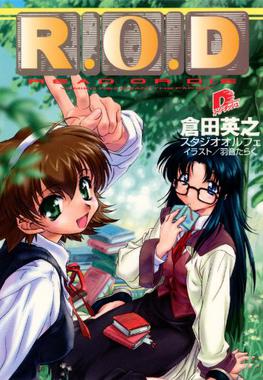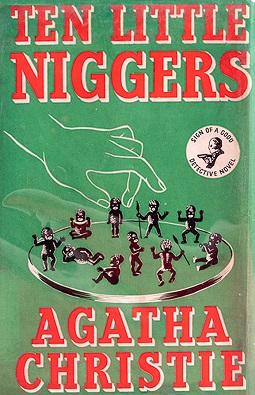
The Forever War (1974) is a military science fiction novel by American author Joe Haldeman, telling the contemplative story about human soldiers fighting an interstellar war against an alien civilization known as the Taurans. It won the Nebula Award in 1975 and the Hugo and Locus awards in 1976. Forever Free (1999) and Forever Peace (1997) are, respectively, direct and thematic sequel novels. The novella A Separate War (1999) is another sequel of sorts, occurring simultaneously with the final portion of The Forever War. Informally, the novels comprise The Forever War series; the novel also inspired a comic book and a board game. The Forever War is the first title in the SF Masterworks series.

R.O.D: Read or Die is a Japanese light novel series written by Hideyuki Kurata, published under Shueisha's Super Dash Bunko imprint. Read or Die follows Yomiko Readman, codename "The Paper", an agent for the (fictional) Special Operations Division of the British Library. There are currently 11 Read or Die novels. In volume 11, a note stated that the series would end with the upcoming volume 12. In June 2016, it was announced via Twitter that volume 12 would be released in August, and that there would be a volume 13.
Iron Man, Ironman or Ironmen may refer to:
Dead or Alive most commonly refers to:
Pathfinder, Path Finder or Pathfinders may refer to:

Type-Moon is a Japanese video game company, best known for their visual novels, co-founded by author Kinoko Nasu and illustrator Takashi Takeuchi. It is also known under the name Notes Co., Ltd. for its publishing and corporate operations, as it is the company official name, while Type-Moon is a brand name as a homage to the original doujin group. After creating the popular visual novel Tsukihime as a doujin soft circle, Type-Moon has since incorporated and produced the even more popular visual novel Fate/stay night, which became its most well-known title. Both series have also been adapted into anime and manga series that have amassed a global fanbase.
A commando is an elite light infantry or special forces soldier, trained for quick raid operations.
Avenger, Avengers, The Avenger, or The Avengers may refer to:

Return to the Planet of the Apes is a 1975 American animated television series based on the 1968 film Planet of the Apes and its sequels, which were, in turn, based on the 1963 novel of the same name by Pierre Boulle. Unlike the film, its sequels, and the 1974 live-action television series, which involved a primitive ape civilization, Return to the Planet of the Apes depicted a technologically advanced society, complete with automobiles, film, and television; as such it more closely resembled both Boulle's original novel and early concepts for the first Apes film which were changed due to budgetary limitations in the late 1960s.
Spider-Man is a Marvel Comics superhero.
The Three Musketeers is an 1844 novel by Alexandre Dumas. It may also refer to:
Snow White is a popular fairy tale.
The Jungle Book is an 1894 collection of stories written by Rudyard Kipling.
Starship Troopers is a 1959 novel by Robert Heinlein.
An overlord in the English feudal system was a lord of a manor who had subinfeudated a particular manor, estate or fee, to a tenant.

Library War is a Japanese light novel series by Hiro Arikawa, with illustrations by Sukumo Adabana. There are four novels in the series, though only the first novel is called Toshokan Sensō; the subsequent novels are named Toshokan Nairan, Toshokan Kiki, and Toshokan Kakumei. The novels were published by MediaWorks between February 2006 and November 2007. Two volumes of a spin-off series entitled Bessatsu Toshokan Sensō have also been published by ASCII Media Works.

And Then There Were None is a mystery novel by the English writer Agatha Christie, who described it as the most difficult of her books to write. It was first published in the United Kingdom by the Collins Crime Club on 6 November 1939, as Ten Little Niggers, after an 1869 minstrel song that serves as a major plot element. The US edition was released in January 1940 with the title And Then There Were None, taken from the last five words of the song. Successive American reprints and adaptations use that title, though American Pocket Books paperbacks used the title Ten Little Indians between 1964 and 1986. UK editions continued to use the original title until 1985.
G.I. Joe is a line of military-themed action figures produced by Hasbro.
This page is based on this
Wikipedia article Text is available under the
CC BY-SA 4.0 license; additional terms may apply.
Images, videos and audio are available under their respective licenses.





